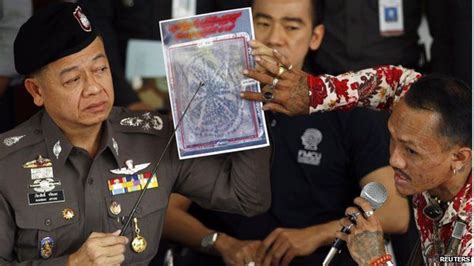A vibrant country with a rich cultural heritage, Thailand is known for its beautiful landscapes, delicious cuisine, and intricate traditions. However, beneath the surface of this idyllic paradise lies a complex legal system that governs various aspects of Thai society. One such law that has been making headlines recently is the lese-majeste law, which prohibits any form of insult or defamation against the monarchy.
In a recent turn of events, an American academic named Paul Chambers has found himself at the center of a legal storm in Thailand. A lecturer at Naresuan University in central Thailand, Chambers has been slapped with an arrest warrant under the lese-majeste law for allegedly insulting the royal family. This move has sparked outrage and debate both within Thailand and on the international stage.
Legal Battle Unfolds
The saga began when the Thai army filed a complaint against Chambers, accusing him of violating both the lese-majeste law and computer crime laws. According to his legal representation, Chambers and his lawyer are set to report to police soon, where formal charges are expected to be lodged against him. If convicted, Chambers could face a hefty prison sentence ranging from three to 15 years for each count of lese-majeste.
As Akarachai Chaimaneekarakate, advocacy lead for the Thai Lawyers for Human Rights Centre representing Chambers stated, it is uncommon for foreigners to be targeted under the lese-majeste law. However, in this case, Chambers has been accused of engaging in activities deemed detrimental to national security and public order.
American Scholar Caught in Legal Quagmire
Chambers’ predicament highlights the delicate balance between freedom of speech and respect for cultural norms in Thailand. With a long history of living and working in the country, including conducting research on its military affairs, Chambers now finds himself entangled in a legal battle that could have far-reaching consequences.
According to sources close to Chambers, he had never been served with a subpoena before this incident. The sudden turn of events has left him bewildered and uncertain about his future in Thailand.
Debating Freedom vs Tradition
The use of the lese-majeste law has become increasingly contentious as calls for political reform grow louder in Thailand. Student-led pro-democracy movements have brought issues related to royal authority into sharp focus, leading to heightened tensions between traditionalists and reformists.
Critics argue that the lese-majeste law is being weaponized by authorities to stifle dissent and suppress free speech. The recent surge in cases involving individuals from diverse backgrounds further underscores concerns about governmental overreach and restrictions on civil liberties.
Calls for Reform
International bodies like the European Parliament have called on Thailand to reconsider its stringent application of the lese-majeste law. They argue that such laws undermine democratic principles and hamper progress towards greater social inclusivity and political transparency.
As discussions around potential reforms gather momentum within Thai parliament, observers are keenly watching how lawmakers will navigate this thorny issue that touches upon deeply entrenched beliefs about monarchy’s role in modern society.
In conclusion,…
Through Paul Chambers’ ordeal,…
As Thailand grapples with…

